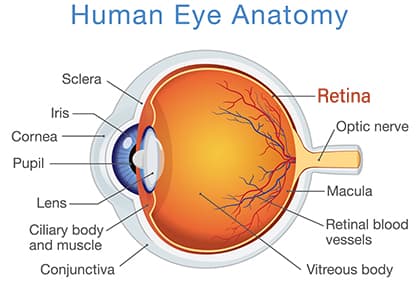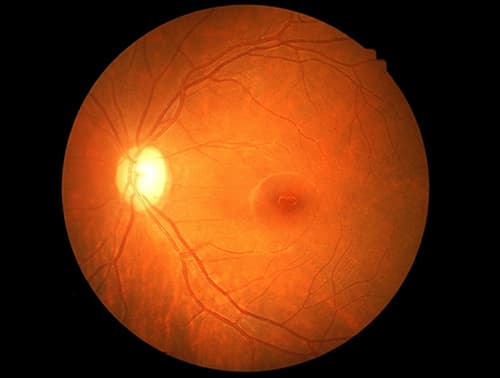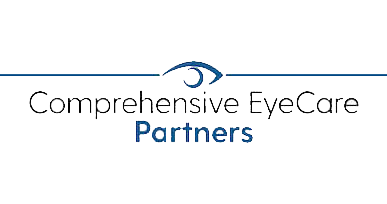Protect Your Vision and Eye Health from Retinal Disease
Because of the retina’s central role in eyesight, the problems affecting it are potentially very serious. Retinal disorders and diseases can affect your vision, including partial vision loss and, in some cases, total blindness.
A center of excellence for medical retinal care, Evergreen Eye Center offers state-of-the-art diagnosis and treatment of retinal diseases, including:
- Macular degeneration – If the eye is like a camera, the macula is the film. This light-sensing tissue is critical to clear eyesight, but it can start to deteriorate after years of use, causing loss of central vision. Age-related macular degeneration (AMD) is the leading cause of blindness in older Americans. Because the early stages of this disease aren’t noticeable, it is critically important to see an eye doctor who has the diagnostic capabilities to detect and treat this condition.
- Diabetic eye disease – Having diabetes is a risk to your eyesight. Prolonged high blood sugars can lead to a condition called Diabetic Retinopathy, the leading cause of blindness in working-age adults. Macular edema, the swelling of the macula as a result of diabetic retinopathy, can also cause vision loss.
- Retinal vascular occlusion – Arteries deliver oxygen and nutrients to the retina via the blood. Waste produced by the retina is removed via the blood through veins. When these blood vessels become blocked (occluded), fluids can build up, causing vision loss.
- Retinal tears, holes and scar tissue – Tears or holes in the retina can allow fluid to seep behind the retina and cause the retina to detach. A tear can also cause a blood vessel to become torn and leak blood into the fluid of the eye (vitreous hemorrhage).
- Retinal detachment – The retina can become detached from the back of the eye. This is a medical emergency that, without prompt treatment, can result in permanent vision loss. Detachment can be caused by retinal diseases, trauma, or can happen spontaneously.
What are the retina and macula?

The retina is the light-sensitive tissue layer at the back of the eye. Light is focused by the lens and cornea onto the retina, which serves a function much like the film in a camera. When light strikes the retina, the retina initiates chemical and electrical events, which in turn trigger nerve impulses. These signals are then sent to the brain through the optic nerve.
The retina is actually considered part of the central nervous system, as it (just like the optic nerve) develops embryonically as an outgrowth of the brain. A small oval of high-density light-sensitive structures near the center of the retina — the macula — is responsible for producing sharp, clear, high-acuity vision.
Trust specialized, state-of-the-art retinal expertise and care

At Evergreen Eye Center, our experienced, highly dedicated ophthalmologists use today’s most advanced and effective methods to diagnose and treat medical retinal disorders.
Optical coherence tomography, fluorescein angiography, ICG, digital fundus photography, and other state-of-the-art techniques enable us to completely understand your retina problem.
We also use state-of-the-art argon lasers to very precisely treat diabetic eye disease and repair retinal tears. The latest FDA-approved medications, anti-VEGF therapy, and Photo Dynamic Therapy help us slow down disease progression, including the abnormal growth of blood vessels.
For detached retina, Evergreen Eye Center works with several of the Puget Sound’s top retinal surgeons to ensure you get the best possible outcomes.
Know the signs. But don’t wait for them!
If you see a sudden increase in the number or size of “floaters” — webs or specks — in your vision, you could be experiencing retinal problems. Or if you have shadows in your peripheral (side) vision or suddenly begin experiencing flashes of light or flickering in your peripheral vision, you may be experiencing retinal detachment, which is a serious eye emergency.
The best retinal care is the routine retinal exam, particularly if you have diabetes. The key is to detect, diagnose and treat retina problems as early as possible. Our ophthalmologists can intervene with the most appropriate and effective treatments to help you keep seeing your best.
To schedule an appointment, call 800-340-3595.

